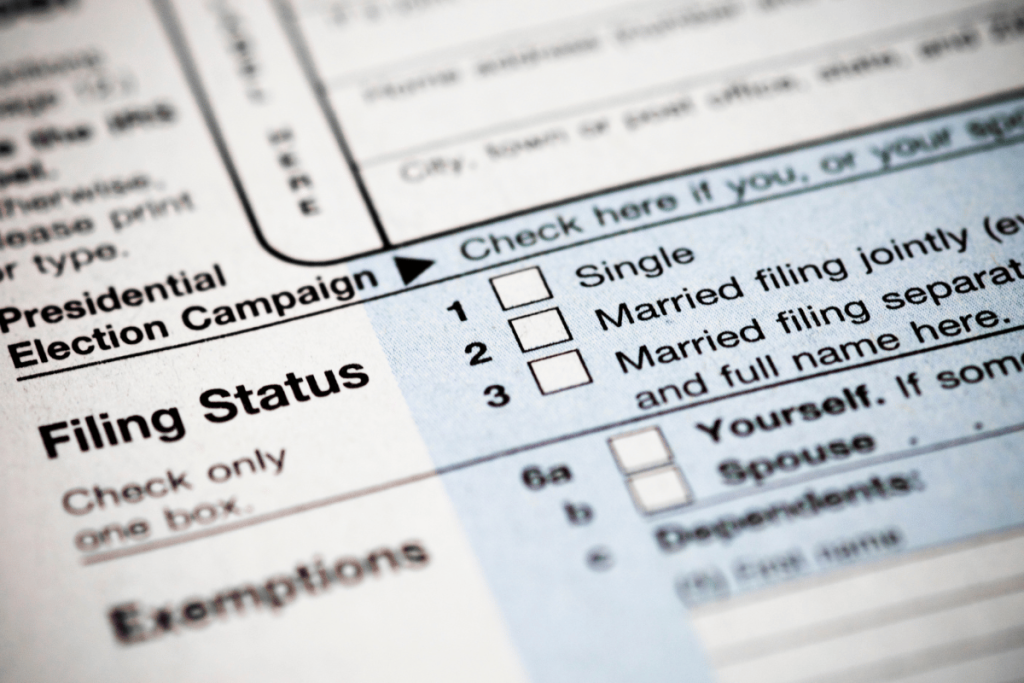When to File Taxes in Canada: Key Dates and Practical Tips

Filing taxes isn’t just about meeting deadlines it’s about staying compliant with Canadian tax laws and setting your finances up for success. Whether you’re a homeowner, small business owner, or professional, knowing when and how to file is crucial. In this guide, we’ll walk you through important timelines, CRA rules, and best practices to help you avoid common mistakes and penalties. As tax professionals, we often see clients miss out on deductions or face penalties simply because they weren’t sure when to file. Let’s break down the key dates and details you need to know. Personal Income Tax Filing Deadlines For most Canadians, the personal income tax filing deadline is April 30 each year. This applies to income from: Employment Pensions Investments Rental properties If April 30 falls on a weekend or public holiday, the deadline moves to the next business day. Self-employed individuals (and their spouses or common-law partners) have until June 15 to file, but any taxes owed must still be paid by April 30 to avoid interest charges. Keep in mind filing and payment deadlines are different. Pro tip from a Toronto CPA Start organizing your tax documents early January and February are perfect for getting ahead. Waiting until the last minute often leads to errors or missed credits. Corporate Tax Deadlines If you own an incorporated business, the rules are different: Corporate income tax returns (T2) must be filed within six months of your fiscal year-end Any balance owing is typically due two or three months after your fiscal year-end, depending on your company’s tax status. For example, if your fiscal year ends December 31, your T2 return is due by June 30 the following year. The payment deadline may be earlier, so check with your CPA to be sure. GST/HST Filing Deadlines Businesses registered for GST/HST must file returns based on their reporting period, which could be: Monthly Quarterly Annually For annual filers, the deadline is usually three months after your fiscal year-end. Late filing or payments can lead to penalties, so staying on schedule is important. What Happens If You Miss a Deadline? Missing tax deadlines can be costly: Late-filing penalty: 5% of your balance owing, plus 1% for each full month your return is late (up to 12 months). Interest charges on unpaid amounts. Potential loss of refundable tax credits. If you miss a deadline, file as soon as possible to limit penalties. You may qualify for Taxpayer Relief if you have a valid reason (such as serious illness, family tragedy, or natural disaster). A trusted Toronto accountant can guide you through this process. Best Practices to Stay On Top of Your Taxes 1. Mark Important Dates Use a digital or paper calendar to track key tax deadlines. Set reminders well in advance. 2. Gather Documents Year-Round Don’t wait until tax season to find receipts and slips. Keep a simple filing system for T4s, T5s, RRSP receipts, donation slips, and medical expenses. 3. Consider Quarterly Instalments If you’re self-employed or earn rental/business income, you may need to pay quarterly instalments. The CRA will notify you if this applies. Paying on time prevents surprises at tax time. 4. Work With a Professional A CPA in Toronto can help you: Identify all eligible deductions and credits Ensure compliance with tax laws File accurately and on time Plan ahead for future tax seasons 5. Use CRA’s Online Tools: The CRA’s My Account and My Business Account portals let you check your tax status, balances, instalments, and more securely and conveniently. Why Timing Matters Filing late can cost you more than just money it can cause unnecessary stress and complications. Whether managing personal taxes, small business returns, or corporate filings, staying organized and informed is the best way to stay compliant. If you ever feel unsure about deadlines, deductions, or filing requirements, working with a Toronto-based CPA can make tax season easier and less stressful. Smart planning today means fewer headaches tomorrow.
Why Bookkeeping Matters for Canadian Small Businesses and Professionals

For many Canadian homeowners, small business owners, and professionals, bookkeeping often feels like a tedious task that gets pushed aside when life and business get busy. However, keeping your books up to date is more than just good practice — it’s vital for understanding your financial health, staying compliant with tax laws, and making informed decisions for your future. In this article, we’ll explain why bookkeeping is important and how partnering with a trusted Toronto accountant can make a significant difference. 1. Stay Organized All Year Long Bookkeeping gives you a clear, current snapshot of your income, expenses, and profits. This is especially important for small business owners who juggle many responsibilities. Without proper records, it’s easy to lose track of invoices, forget payments, or overlook tax-deductible expenses. By consistently maintaining your books throughout the year, you’ll always know where your business stands financially. When tax season arrives, you won’t scramble to find receipts or fix errors everything will already be in order. 2. Stay Compliant with CRA Requirements The Canada Revenue Agency (CRA) requires all businesses—whether sole proprietorships, partnerships, or corporations to keep accurate financial records. Good bookkeeping helps you: Report income accurately Claim allowable expenses correctly Collect, charge, and remit GST/HST properly Retain your records for the required period (usually six years) Working with a CPA in Toronto ensures you meet these obligations and avoid costly penalties. Plus, they’ll keep you informed about any tax law changes that could impact your business. 3. Make Smarter Financial Decisions Accurate, up-to-date bookkeeping gives you valuable insight into your cash flow and financial position, helping you to: Manage cash flow effectively Identify growth opportunities Spot potential financial issues early Budget confidently for upcoming expenses Without this clarity, it’s easy to overspend or miss key deadlines. Reliable bookkeeping empowers you to run your business with confidence. 4. Simplify Tax Filing and Maximize Savings Tax season can be stressful for many Canadian business owners. Accurate bookkeeping makes filing your taxes easier and more precise, helping you: Submit complete and accurate returns Maximize eligible deductions Reduce audit risks Meet CRA deadlines without last-minute stress A knowledgeable Toronto accountant can review your records, spot tax-saving opportunities, and ensure your filing complies with the latest CRA rules. 5. Prepare for Financing or Investment If you plan to apply for a business loan or attract investors, up-to-date financial records are essential. Lenders and investors want to see clear, accurate bookkeeping to assess your business’s financial health and creditworthiness. Having professionally maintained books prepared by a Toronto CPA can boost lender confidence and speed up funding approvals when you need them most. 6. Save Time and Reduce Stress While bookkeeping might not be the most exciting task, ignoring it often leads to bigger headaches later. Keeping your books updated helps you: Stay organized year-round Avoid last-minute tax panic Reduce the risk of costly financial errors Focus your time on growing your business Using professional accounting services or modern bookkeeping software can streamline the process and keep your records in excellent shape with minimal effort. Whether you’re running a small business, freelancing, or managing rental properties, bookkeeping isn’t optional it’s a cornerstone of financial success. Staying on top of your records ensures compliance, smarter decisions, and readiness for whatever the future holds. For those looking to save time and gain peace of mind, working with a Toronto CPA is a smart choice. Professional accountants offer expert advice, keep your books accurate, and help you navigate Canada’s complex tax and accounting rules. At the end of the day, good bookkeeping means one less thing to worry about — so you can focus on what matters most: growing your business and reaching your goals.
Tax Guides & Checklists

Evergreen Tax & Accounting Professional Corporation offers practical tax guides and checklists to support your personal and business tax filing needs. About Evergreen Tax & Accounting Professional Corporation Trusted CPA firm serving individuals, small businesses, and incorporated companies across Toronto Expertise in bookkeeping, corporate tax filing, business incorporation, and tax planning Responsive, client-focused approach with professional service Corporate Tax Services Corporate Tax Planning: Customized strategies aligned with business and financial goals T2 Corporate Tax Return: Preparation and filing of corporate income tax returns with CRA RC59 – Business Authorization: CRA authorization for Evergreen to represent you T5 Corporate Tax Checklist: Required information for issuing T5 slips to shareholders Corporate Tax Process Guide: Clear five-step tax filing process for corporate clients Business Startups & Incorporation RC59 – Business Number Application: Details required to obtain a Canadian Business Number New Incorporation Checklist: Information needed to incorporate your business (provincially or federally) Business Startup Kit: Essential guidance for setting up your business and meeting CRA obligations CRA Payment Support CRA Payment Guide: Step-by-step instructions for submitting payments to CRA Personal Tax Services Canadian Personal Tax Return Checklist: Required details to prepare and file your personal taxes 2024 Canadian Tax Changes: Notable updates impacting personal tax returns U.S. Personal Tax Return: Information required to file U.S. personal taxes 2024 U.S. Tax Changes: Key changes for the current U.S. tax year Family Trust Checklist: Information needed to set up a Family Trust T2062 Checklist: Details for non-residents applying for a Certificate of Compliance Tax-Based Treaty Checklist: Required information for treaty-based tax filings Voluntary Disclosure Program Checklist: Details to support corrections of past tax filing Non-Resident Tax Services ITN Application for Non-Residents: Support with Individual Tax Number applications Non-Resident Rental Guide: Guidance for non-residents managing Canadian rental properties Section 216 Checklist: Required information to file Section 216 rental income returns NR4 Pro Forma Letter Checklist: Preparation of NR4 Pro Forma letters when NR4 slips are unavailable

